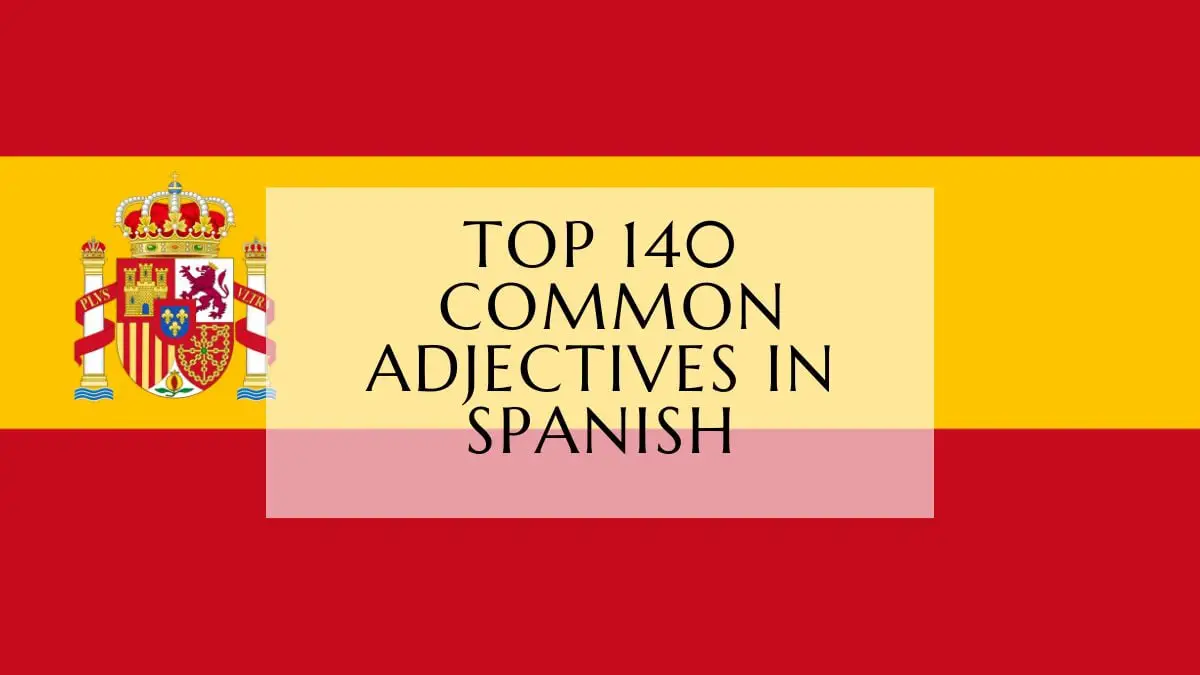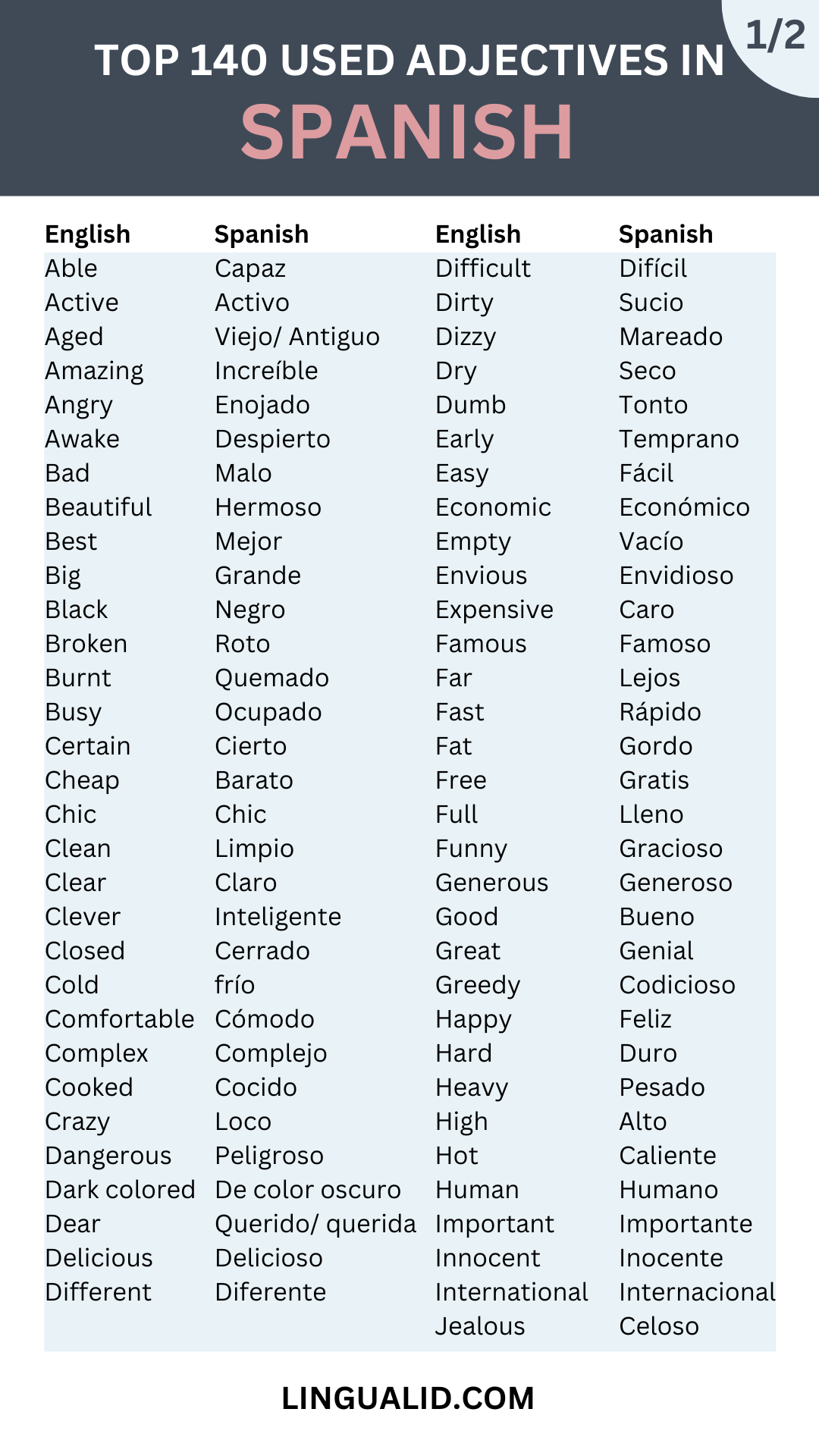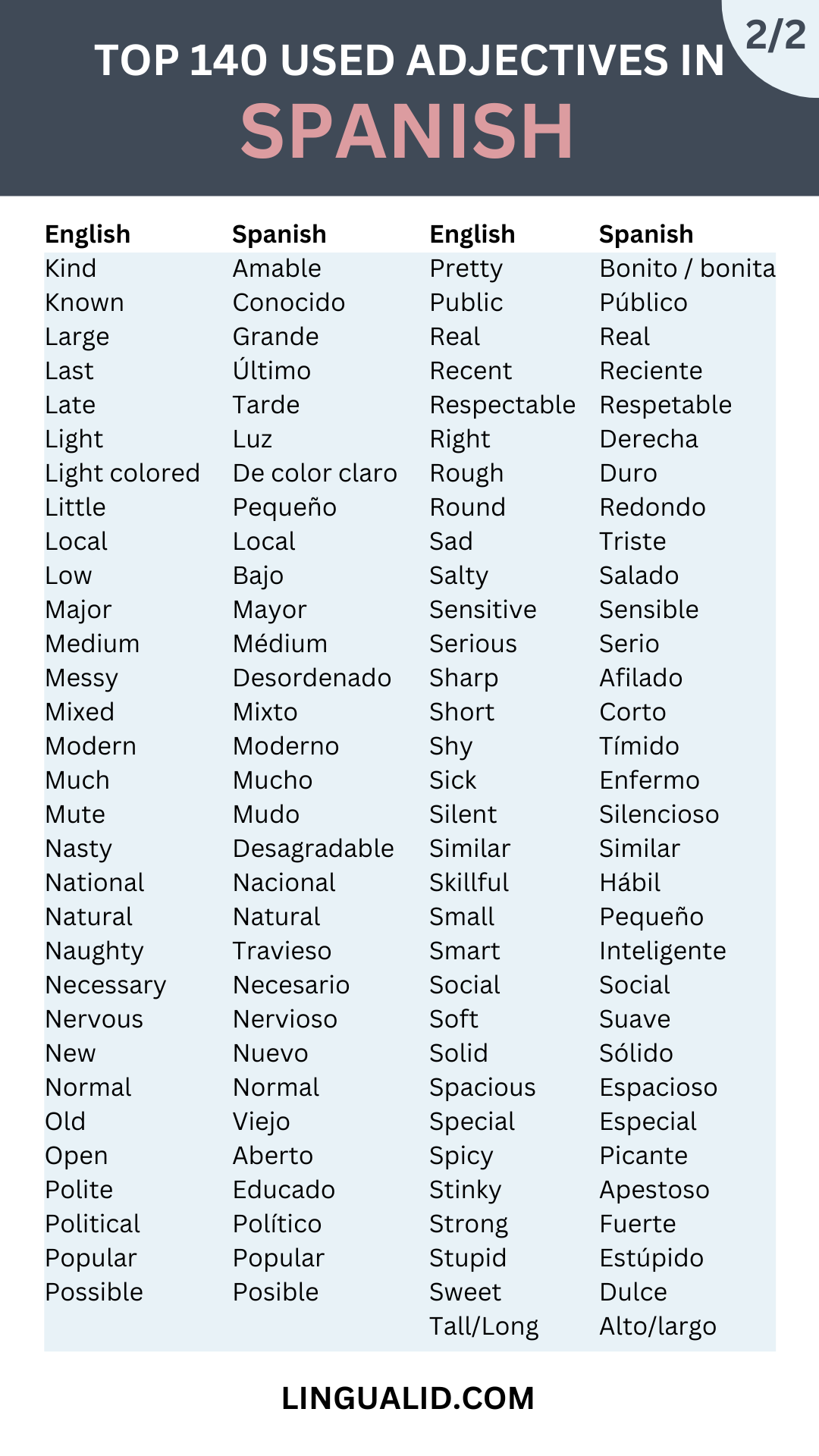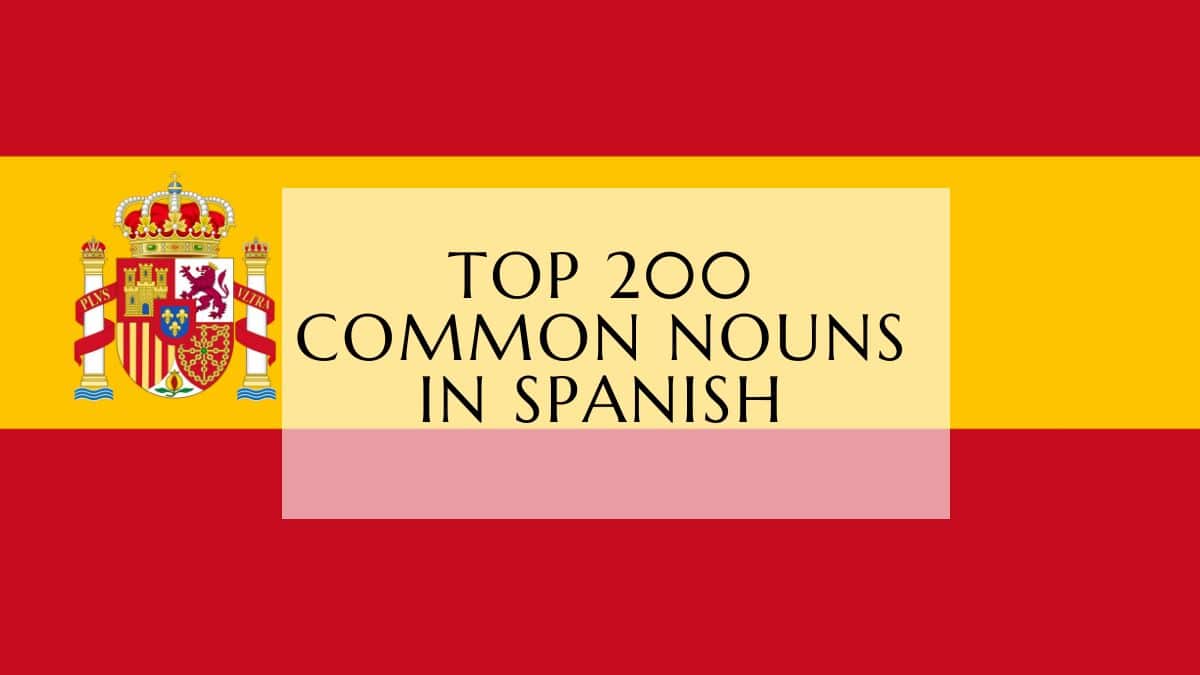This list of the most 140 common adjectives in Spanish (with audio) is the perfect place to start expanding your Spanish vocabulary, and it’s very useful when it comes to producing descriptive sentences, which can be used daily.

Most Common Adjectives In Spanish
| English | Spanish |
| Able | Capaz |
| Active | Activo |
| Aged | Viejo/ Antiguo |
| Amazing | Increíble |
| Angry | Enojado |
| Awake | Despierto |
| Bad | Malo |
| Beautiful | Hermoso/ hermosa |
| Best | Mejor |
| Big | Grande |
| Black | Negro |
| Broken | Roto |
| Burnt | Quemado |
| Busy | Ocupado |
| Certain | Cierto |
| Cheap | Barato |
| Chic | Chic |
| Clean | Limpio |
| Clear | Claro |
| Clever | Inteligente |
| Closed | Cerrado |
| Cold | frío |
| Comfortable | Cómodo |
| Complex | Complejo |
| Cooked | Cocido |
| Crazy | Loco |
| Dangerous | Peligroso |
| Dark colored | De color oscuro |
| Dear | Querido/ querida |
| Delicious | Delicioso |
| Different | Diferente |
| Difficult | Difícil |
| Dirty | Sucio |
| Dizzy | Mareado |
| Dry | Seco |
| Dumb | Tonto |
| Early | Temprano |
| Easy | Fácil |
| Economic | Económico |
| Empty | Vacío |
| Envious | Envidioso |
| Expensive | Caro |
| Famous | Famoso |
| Far | Lejos |
| Fast | Rápido |
| Fat | Gordo |
| Free | Gratis |
| Full | Lleno |
| Funny | Gracioso |
| Generous | Generoso |
| Good | Bueno |
| Great | Genial |
| Greedy | Codicioso |
| Happy | Feliz |
| Hard | Duro |
| Heavy | Pesado |
| High | Alto |
| Hot | Caliente |
| Human | Humano |
| Important | Importante |
| Innocent | Inocente |
| International | Internacional |
| Jealous | Celoso |
| Kind | Amable |
| Known | Conocido |
| Large | Grande |
| Last | Último |
| Late | Tarde |
| Light | Luz |
| Light colored | De color claro |
| Little | Pequeño |
| Local | Local |
| Low | Bajo |
| Major | Mayor |
| Medium | Médium |
| Messy | Desordenado |
| Mixed | Mixto |
| Modern | Moderno |
| Much | Mucho |
| Mute | Mudo |
| Nasty | Desagradable |
| National | Nacional |
| Natural | Natural |
| Naughty | Travieso |
| Necessary | Necesario |
| Nervous | Nervioso |
| New | Nuevo |
| Normal | Normal |
| Old | Viejo |
| Open | Aberto |
| Polite | Educado |
| Political | Político |
| Popular | Popular |
| Possible | Posible |
| Pretty | Bonito / bonita |
| Public | Público |
| Real | Real |
| Recent | Reciente |
| Respectable | Respetable |
| Right | Derecha |
| Rough | Duro |
| Round | Redondo |
| Sad | Triste |
| Salty | Salado |
| Sensitive | Sensible |
| Serious | Serio |
| Sharp | Afilado |
| Short | Corto |
| Shy | Tímido |
| Sick | Enfermo |
| Silent | Silencioso |
| Similar | Similar |
| Skillful | Hábil |
| Small | Pequeño |
| Smart | Inteligente |
| Social | Social |
| Soft | Suave |
| Solid | Sólido |
| Spacious | Espacioso |
| Special | Especial |
| Spicy | Picante |
| Stinky | Apestoso |
| Strong | Fuerte |
| Stupid | Estúpido |
| Sweet | Dulce |
| Tall/Long | Alto/largo |
| Thin | Delgado |
| Tight | Apretado |
| Tired | Cansado |
| Traditional | Tradicional |
| Ugly | Feo |
| Warm | Caliente |
| Weird | Raro |
| Wet | Húmedo |
| White | Blanco |
| Whole | Entero |
| Wrong | Malo |
| Young | Joven |
Note: you can practice what you’ve learned here, and learn how to pronounce each of the words in our Memrise course here, don’t know how to use the platform or sign up? we’ve got you covered in this easy-to-follow tutorial here.


Spanish Adjectives Study Guide
I. Short Answer Questions (Answer Key Follows)
- What two Spanish adjectives translate to “old” in English, and how do their usages differ?
- Provide the Spanish translations for the following English adjectives: delicious, difficult, free, funny.
- List three Spanish adjectives that describe size and provide their English equivalents.
- What is the Spanish adjective for “expensive,” and what is its feminine form?
- Translate the following phrase into Spanish: “a beautiful, new house.”
- What are the masculine and feminine forms of the Spanish adjective for “busy”?
- Provide the Spanish translations for the following English adjectives: clear, clean, clever.
- What Spanish adjective means “weird,” and what is a synonym for it in English?
- Translate the following phrase into Spanish: “a tall, thin man.”
- What is the Spanish adjective for “whole,” and what is its English equivalent?
II. Short Answer Question Answer Key
- Viejo and antiguo both mean “old.” Viejo refers to age, while antiguo refers to something from a long time ago.
- Delicioso/a, difícil, gratis, gracioso/a
- Grande (big), pequeño/a (small), alto/a (tall/high)
- Caro, cara
- Una casa hermosa y nueva
- Ocupado (masculine), ocupada (feminine)
- Claro/a, limpio/a, inteligente
- Raro/a, strange
- Un hombre alto y delgado
- Entero/a, complete/entire
III. Glossary of Key Terms
- Adjective: A word that describes or modifies a noun or pronoun.
- Gender Agreement: In Spanish, adjectives must agree in gender (masculine or feminine) with the noun they modify.
- Number Agreement: In Spanish, adjectives must agree in number (singular or plural) with the noun they modify.
- Descriptive Adjective: An adjective that describes a quality or characteristic of a noun (e.g., beautiful, big, happy).
- Classifying Adjective: An adjective that categorizes a noun or puts it into a group (e.g., medical, historical, economic).
- Cognate: A word in one language that has a similar form and meaning to a word in another language (e.g., “delicious” in English and “delicioso” in Spanish).
- False Cognate: A word in one language that appears similar to a word in another language but has a different meaning.
- Noun: A word that names a person, place, thing, or idea.
- Pronoun: A word that replaces a noun (e.g., he, she, it, they).
Happy learning!
Oualid Cheddadi is the founder of Lingualid, a platform that inspires independent language learners worldwide, regardless of the language they are learning. The name “Lingualid” is derived from the Portuguese word for “language,” “língua,” and the last three letters of Oualid’s name, “Lid.”



